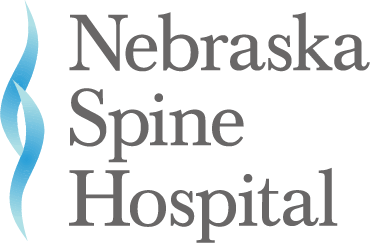This video explores how patients might be instructed to prepare for a back or spine surgery. Whether they need to lose weight, stop smoking or increase strength, Nebraska Spine Hospital’s Surgical Readiness Program can help get them where they need to be for a successful surgery and recovery.
Transcript
Angela Mahood has been in pain for a long time.
Angela -CHI Patient: Three years ago I ruptured three disks, and we did a disectomy to fix it, and six weeks later I ruptured one again.
When the pain became unbearable, Angela opted for a two level spinal fusion -major surgery to eleviate her pack pain.
I thought we could get it scheduled right away and we wouldn’t have to wait.
But her surgeon said, not so fast..
Angela: “You need to lose 50 pounds before I will work on you.”
Not exactly what Angela wanted to hear. She wanted relief right away. Her doctor wanted a successful surgery.
Angela: When he explained it, why, and the chance of infection is greatly reduced when you lose a lot of weight, and my recovery will be a lot faster by losing the weight as well. But at the beginning I was like, “Please just do it. Let’s do it tomorrow.”
Angela is like millions of Americans in need of back surgery but not in the best shape for the operation. That’s why CHI Health and the Nebraska Spine Hospital at Immanuel partner on a program called Surgery Readiness, where care coordinators who are also registered nurses get patients who need to lose weight, stop smoking or address other health issues, ready for major surgery,
Robin Olmstead -RN, BSN, ONC and Care Coordinator: There’s evidence out there indicating that healthy weight -they’re going to have a much better out come, less surgical complications, less anesthesia complications, and just do better post-operatively. So, that is the reason for the weight loss.
For smoking cessation there’s evidence that indicates they are not going to fuse post-operatively. Most of our patients are having a spinal fusion -it’s probably the most common spine surgery, and if they are dependent on nicotine, the fusion is not going to heal.
So, lifestyle changes are in order to avoid surgical complications. On paper that sounds doable, but in reality if kicking the habit or dropping weight were easy, most people would be skinny and smoke free. So the care coordinators meet with each patient, assess their special needs, figure out their possible roadblocks and come up with a plan that is tailor made for them.
Robin: It can be overwhelming to look at a hundred pound weight loss, and.. “How am I going to do this, I’ve tried other plans and I’ve never had success before.” But they have also never had the support that we can offer them every step of the way. Instead of coaching sports, I’m coaching healthy lifestyles.
And that coach is free. The care coordinators at CHI Health are a vital part of value-based care. They work with patients to get them healthy and keep them healthy -avoiding costly stays in the hospital.
Angela: This program is needed.
Angela will tell you she did the heavy lifting to drop the weight, but Robin, her coach was there to encourage her every step of the way.
Angela: I’m getting my life back, is truly how I feel. I have a husband and two boys, and there are so many things I wasn’t able to do with them. So that’s my hope, is that once I get healed then we’re gonna live again.
Before Surgery Readiness, patients would be told to lose weight or stop smoking and the plan to get there was squarely on their shoulders. Now, CHI health care coordinators are reaching out to patients like Angela, helping them make lifestyle changes before surgery that twill lead to a healthier life after surgery.
If you would like more information on the Surgery Readiness Program, call 402-717-BACK (option 2) or you can log onto http://www.chihealth.com/.

